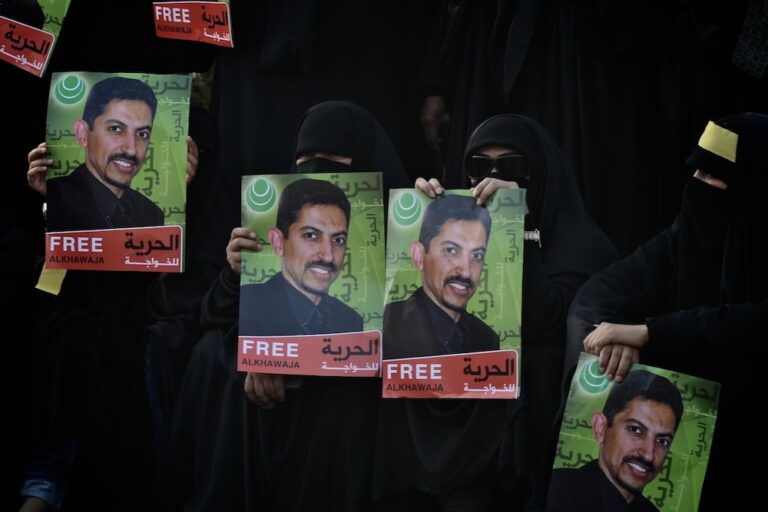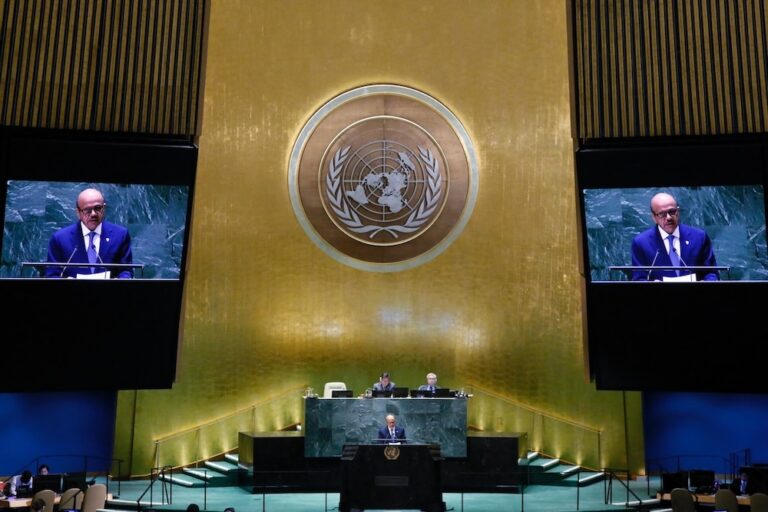(BCHR/IFEX) – The following is a statement from BCHR, an interim member of IFEX: In recent months the Bahraini government has increasingly used the judicial system to pressure local activists and journalists into silence. On 14 March 2007, BCHR vice-president Nabeel Rajab was called before the Criminal Investigation Directorate (CID) for interrogation. According to public […]
(BCHR/IFEX) – The following is a statement from BCHR, an interim member of IFEX:
In recent months the Bahraini government has increasingly used the judicial system to pressure local activists and journalists into silence. On 14 March 2007, BCHR vice-president Nabeel Rajab was called before the Criminal Investigation Directorate (CID) for interrogation.
According to public prosecution officials, Mr Rajab is under investigation for a case filed against him by Ministry of Health employee Adel Abdulla. Mr Abdulla was named in the leaked “Bandargate” report as having received payments from a senior government official to set up Internet forums promoting sectarianism.
The BCHR believes that this investigation – and any resulting criminal charges – represents the Bahrain government’s latest attempt to silence activists who continue to highlight the Bandargate scandal, which is yet to be officially acknowledged or investigated.
The Bandargate scandal refers to leaked government documents purportedly showing a network of high-level government officials working to maintain the economic and political oppression and disenfranchisement of Bahrain’s Shia majority. Activities described include vote rigging in national elections. The documents were leaked in a report authored by a British consultant to the government, Dr Salah Al Bandar. (See BCHR reports: “Conspiring Against the Shia”, October 2006 and “A Political Scandal”, September 2006).
“This is another example of the Bahraini government using politically motivated cases to put pressure on activists to stop their work,” BCHR president Abdulhadi Al-Khawaja said on 14 March.
“The government has persistently failed to address its population’s concerns and questions raised over the shocking Al Bandar report,” he added. “Instead, it has chosen to threaten and prosecute individuals exercising their right to freedom of speech and asking for governmental accountability and transparency.”
The BCHR calls on the Bahraini government to abandon its persecution of activists who are merely seeking transparency and justice by highlighting the Bandargate report.
The BCHR urges the authorities to investigate those accused of perpetrating the grotesque and damaging activities in the report.
BACKGROUND:
BCHR president Abdulhadi Al-Khawaja and two other activists are being prosecuted for continuing to highlight the Bandargate scandal and may face criminal charges of up to 15 years in prison (see IFEX alert of 28 February 2007).
Dr Salah Al Bandar, the whistleblower, was forcibly deported from Bahrain by government authorities after delivering copies of the report to the press.
Following the revelations of the scandal in October 2006, the Higher Criminal Court, presumably at the behest of the government, issued a ban on all news, information and discussion of the Bandargate case.
Since the ban, the Bahrain government has been continuously threatening activists and journalists, and blocking websites and blogs that have discussed the scandal.
Mr Rajab recently returned from a trip to Washington, DC and Geneva, where he and other BCHR delegates met with representatives of several international organizations to discuss the Bandargate scandal and the general human rights situation in Bahrain.
Some of the groups met were: the Carnegie Endowment for Peace, Amnesty International, Human Rights Watch, and several committees of the Office of the United Nations High Commissioner for Human Rights.


